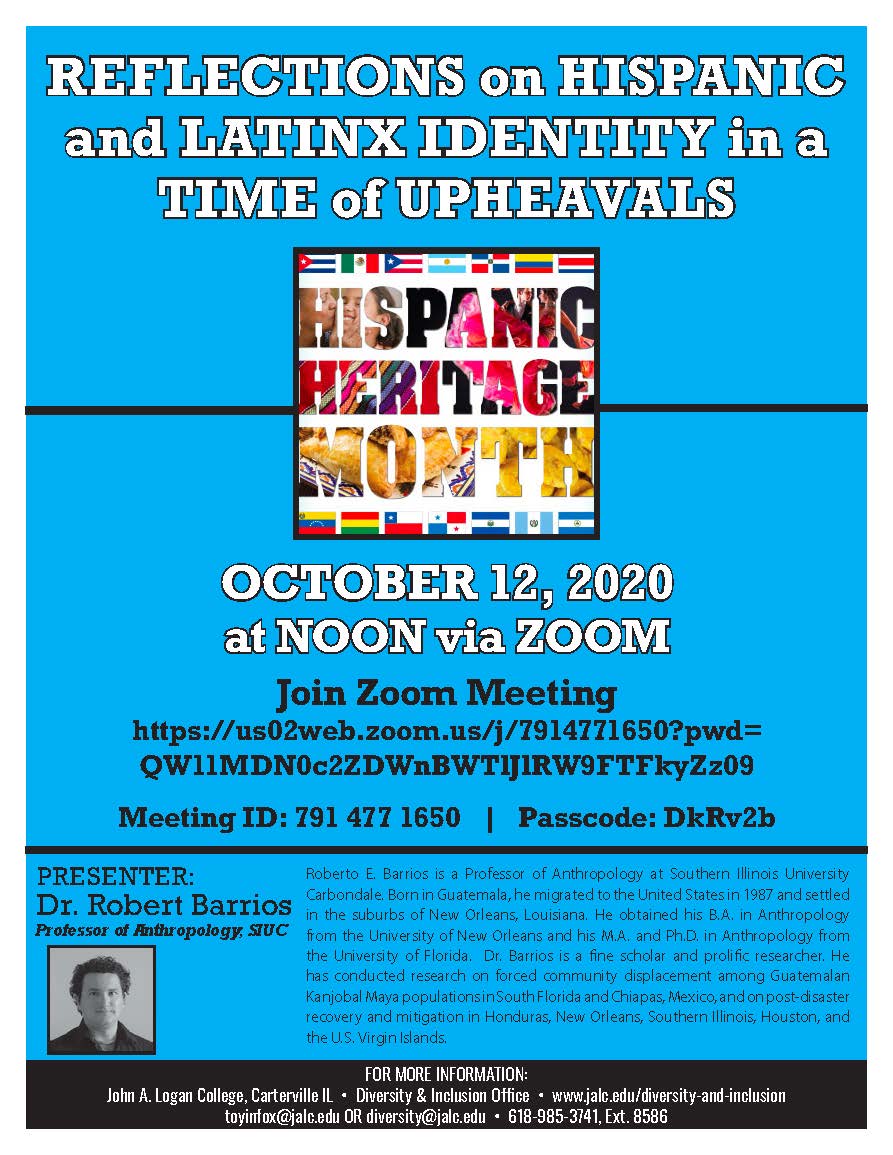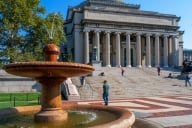You have /5 articles left.
Sign up for a free account or log in.
Two campuses are halting diversity efforts in relation to the White House’s recent executive order against “divisive concepts” in federally funded programs.
In a campus memo, the University of Iowa’s interim associate vice president for diversity, equity and inclusion, Liz Tovar, said, “Let us state unequivocally that diversity, equity and inclusion remain as core values within our institution.” However, she continued, “after consulting with multiple entities, and given the seriousness of the penalties for non-compliance with the order, which include the loss of federal funding, we are recommending that all units temporarily pause for a two-week period.”
John A. Logan College in Illinois also suspended diversity events, including a Hispanic Heritage Month talk planned for next week.
In contrast, the University of Michigan’s president and provost released a statement in response to the order recommitting the campus to diversity, equity and inclusion work. “The educational efforts this order seeks to prohibit are critical to much-needed action to create equitable economic and social opportunities for all members of society,” they said, “to confront our blind spots; and to encourage us all to be better teachers, scholars and citizens.”
The executive order, released Sept. 22, invokes the Declaration of Independence, Abraham Lincoln and Martin Luther King Jr. and describes the “fundamental premises underpinning our Republic” as follows: “All individuals are created equal and should be allowed an equal opportunity under the law to pursue happiness and prosper based on individual merit.”
Yet today, the order says, “many people are pushing a different vision of America that is grounded in hierarchies based on collective social and political identities rather than in the inherent and equal dignity of every person as an individual.” Such an “ideology is rooted in the pernicious and false belief that America is an irredeemably racist and sexist country; that some people, simply on account of their race or sex, are oppressors; and that racial and sexual identities are more important than our common status as human beings and Americans.”
Citing the “malign ideology” of training materials and statements from recent diversity efforts at the Treasury Department and several national laboratories and museums -- such as guidance that racism “is interwoven into every fabric of America” -- the order prohibits the promotion of “race or sex stereotyping or scapegoating” in the federal workforce or in the uniformed services. Federal contractors also will not be permitted to “inculcate such views in their employees,” and grant funds will not be used for such purposes.
Prohibited concepts under the order include that “one race or sex is inherently superior to another race or sex,” that the U.S. “is fundamentally racist or sexist” and that “an individual, by virtue of his or her race or sex, is inherently racist, sexist or oppressive, whether consciously or unconsciously.”
Actor and playwright William Jackson Harper also has said that the order threatens arts-based work he's been doing with U.S. military academies. One recent activity involved watching the film Malcolm X -- participants' choice of three options, he recalled on Twitter -- and two of the academies wavered before allowing cadets to participate, due to the White House guidance. One of four slated academies ultimately canceled.
"The film Malcolm X is history. American History," Harper wrote online. "This film is not propaganda meant to teach one to favor one race or sex over the other. It’s History. It’s an admittedly thorny history, but it is history."
Because the order talks about federal employees, agencies and contractors, there has been confusion, even among experts in higher education-government relations, as to its scope. Does the order apply to all federally funded entities, including virtually all colleges and universities?
Preliminary guidance from the State University of New York notes that the order "makes a passing reference to a carve out for education, stating (in full) that '[n]othing in this order shall be construed to prohibit discussing, as part of a larger course of academic instruction, the divisive concepts listed in section 2(a) of this order in an objective manner and without endorsement.'" Yet it is "unclear how the EO would define its 'objectivity' and 'non-endorsement' requirements."
A senior administration official who declined to be named from the White House Office of Management and Budget said Tuesday that the executive order “is not limited to federal agencies and applies to federal contractors and grant recipients when allowed by law. Agencies should review their grant programs to use the discretion they have to apply the prohibitions to grant recipients.”
Iowa’s Office of General Counsel said via email through a spokesperson that the university is “both a federal contractor and a recipient of funds from federal agencies. General Counsel believes the provisions regarding training of employees may be read as applicable to all our employees and not just to those working on or funded through federal contracts.”
John A. Logan did not respond to a request for comment about the college’s interpretation of the order, which resulted in the cancellation of events including the Hispanic Heritage Month talk.
Roberto E. Barrios, a professor of anthropology at Southern Illinois University, was to deliver the talk, based on an invitation from John A. Logan’s diversity office. Barrios said that he was disappointed no one contacted him prior to canceling his talk to see if it did in fact violate the goal of the executive order, as he interpreted and described it: prohibit the “vilification of European Americans and U.S. government institutions.” His planned talk, called “Reflections on Hispanic and Latinx Identity in a Time of Upheavals,” did neither of those things, he said.
 “Critique is not an act of hatred, it’s an act of self-improvement,” he said. “One thing that a university education can do for us is be a means of acquiring new skills to earn a good livelihood and good jobs. But the other important mission is helping develop future citizens who can think critically … That’s my American dream.”
“Critique is not an act of hatred, it’s an act of self-improvement,” he said. “One thing that a university education can do for us is be a means of acquiring new skills to earn a good livelihood and good jobs. But the other important mission is helping develop future citizens who can think critically … That’s my American dream.”
Barrios said he’d planned to talk about growing up in Guatemala, where he enjoyed relative privilege as a “Ladino,” with mixed European and Indigenous heritage. In comparison, he said, Indigenous peoples there were routinely discriminated against.
Barrios’s world changed when he and his family fled Guatemala when he was 13 due to social unrest. They ended up in Louisiana. For the first time, he was subject to discrimination and all kinds of assumptions that people made about him -- the kind of biases about Indigenous people he’d begun to absorb back in Guatemala. Yet being on the receiving end of racism isn’t an experience he’d change, as it taught him the relativity of bias, and that all people everywhere are capable of “beauty” and its opposite, he said.
“The overwhelming majority of Americans seek to do the right thing,” Barrios said. “The challenge is that being ethical requires us to be able to think for ourselves, and in order to think for ourselves we have be given the tools to do that.”
The executive order, as it’s being applied, takes those tools away, he said.
Several free speech groups have released statements against the order, warning that it amounts to censorship. Summer Lopez, senior director of free expression programs at PEN America, for instance, said, “The implications for higher education and the creative community are grave, but the potential impact is broader than that as well. This is an assault on the essential freedom protected under the First Amendment -- not just to speak but to receive information, to debate ideas freely and without fear of punishment, least of all from the government itself. Anything short of that is not democracy. This EO is not just words on paper. It is a danger to our fundamental rights, and it must be revoked immediately.”
A Larger Effort
The executive order is part of a larger federal attack on critical studies, including the White House’s September Conference on American History, at the National Archives. Taking aim at The New York Times’ Pulitzer Prize-winning “1619 Project,” Howard Zinn and even the Smithsonian Institution, Trump said at the event that “students in our universities are inundated with critical race theory. This is a Marxist doctrine holding that America is a wicked and racist nation, that even young children are complicit in oppression, and that our entire society must be radically transformed. Critical race theory is being forced into our children’s schools, it’s being imposed into workplace trainings, and it’s being deployed to rip apart friends, neighbors and families.”
The American Historical Association released a statement on the hastily organized event, saying that it “addresses this ‘conference’ and the president’s ill-informed observations about American history and history education reluctantly and with dismay. The event was clearly a campaign stunt, deploying the legitimating backdrop of the [Archives’] Rotunda, home of the nation’s founding documents, to draw distinctions between the two political parties on education policy, tie one party to civil disorder, and enable the president to explicitly attack his opponent.”
The historians' group said it “deplores the use of history and history education at all grade levels and other contexts to divide the American people, rather than use our discipline to heal the divisions that are central to our heritage.” Healing those divisions “requires an understanding of history and an appreciation for the persistent struggles of Americans to hold the nation accountable for falling short of its lofty ideals.” To learn from U.S. history, “we must confront it, understand it in all its messy complexity and take responsibility as much for our failures as our accomplishments.”
Trump’s line of criticism has some supporters within academe. The conservative National Association of Scholars this week asked the Pulitzer Prize board to rescind the prize from lead "1619" journalist Nikole Hannah-Jones for asserting, among other "manipulations," that the American Revolution, not just the Civil War, was fought in large part to preserve slavery. (Other historians have made similar critiques of that part of the project. The Times issued a partial correction in March.)
Bruce Gilley, a professor of political science at Portland State University and self-described "pro-colonial professor" and enemy of the "hate mob," recently saw his book series on imperialism canceled by his press, following lobbying from his critics. He said the order "does not ban DEI courses at universities for those who want to take them," just the “forced indoctrination of students, as well as employees of federally funded institutions.”
“Just as I would not support mandatory training in capitalism and rugged individualism,” he said, “I do not support mandatory training in any political ideology. Claims that this is important to inspecting airplanes, discovering cancer cures or improving accounting standards are a thin cover for ideological impositions on the public square.”
Barrios’s canceled event wasn’t mandatory for anyone, however. And while some may chalk diversity programs up to “liberal fluff,” he said, they're sometimes about “life and death.” Barrios described Charleston, S.C., church shooter Dylann Roof, for instance, as an “uninformed kid trying to think about the history of his own nation” and “being denied a critical education about it,” with tragic consequences.









